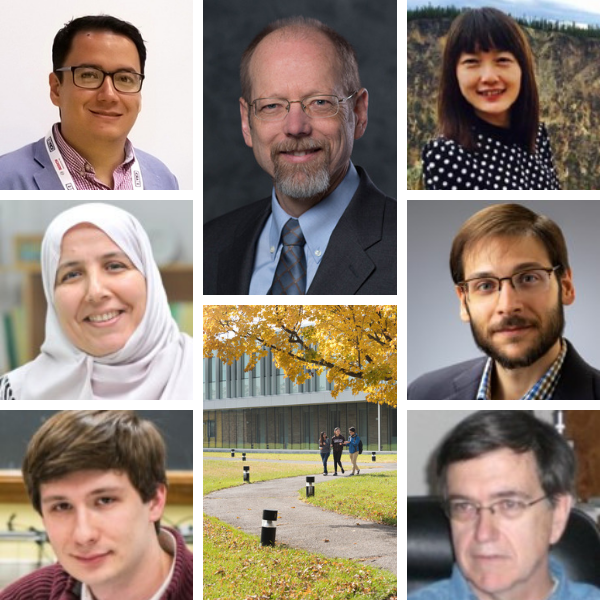It’s an exciting time for the Department of Computer Science and Engineering.
Seven new faculty members will join forces with the department, a true advantage in an increasingly competitive landscape, says computer science and engineering professor Héctor Muñoz-Avila, who also serves as co-director of the Institute for Data, Intelligent Systems, and Computation (I-DISC), a hub for interdisciplinary research.
The newest members include three professors of practice (one of whom started in January), and three assistant professors. Jeff Trinkle has been named the P.C. Rossin Professor and Chair of the Department of Computer Science and Engineering, effective August 1.
The impact of these new hires will be widespread.
“We’ve had significant growth in our undergraduate department, and having three more excellent professors of practice will help us with the teaching load and truly increase student engagement and the quality of their education,” says Muñoz-Avila. “On the research side, we have faculty coming in who are doing groundbreaking work in robotics, machine learning, and social media. These are very current directions followed by people everywhere.”
Directions that will inevitably enhance the interdisciplinary mission of I-DISC.
“Everybody needs machine learning, autonomous systems are now prevalent in society, social media is everywhere, and so these areas are three very natural connections to our mission,” he says.
The addition of Trinkle as chair will further differentiate the department from its competitors.
“He was in charge of the National Robotics Initiative at the National Science Foundation so anyone who does robotics research will know him,” says Muñoz-Avila. “Having a name like his on our team really puts Lehigh in a strong position.”
Below are brief bios of each new faculty member.
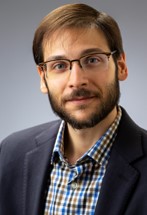
Dominic DiFranzo, Assistant Professor
DiFranzo was a postdoctoral associate in the Social Media Lab at Cornell University’s Department of Communication and Information Science. “My research in human-computer interaction explores practical design interventions that encourage and nudge social media users to stand up to cyberbullies, fact-check fake news stories, and engage in other prosocial actions. I’ve developed new experimental tools and methods that create ecologically valid social media simulations, allowing researchers to conduct large-scale, online social media experiments in a fully curated and controlled social media environment. My work has also focused on using these social media simulations to scale up digital literacy education to young people.” DiFranzo holds a PhD in computer science from Rensselaer Polytechnic Institute.
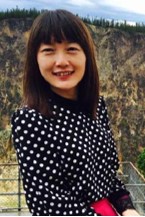 Lifang He, Assistant Professor
Lifang He, Assistant Professor
Lifang He was a postdoctoral research fellow in the Department of Biostatistics, Epidemiology, and Informatics at the University of Pennsylvania. “My current research interests include machine learning, data mining, tensor analysis, and biomedical informatics. My research work focuses on developing advanced computational and statistical methods to analyze various kinds of data such as multidimensional data, graph-structured data, and multi-source data, and with applications to medical and social sciences.” Professor He has a PhD in computer science from South China University of Technology.
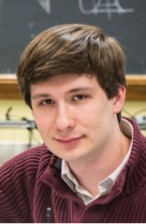 Corey Montella, Professor of Practice
Corey Montella, Professor of Practice
Montella joined the department as a professor of practice in January 2019, after receiving his PhD in computer engineering from Lehigh. His areas of research include programming language design and implementation, computational thinking in education, dynamic systems and control, human-computer interaction, autonomous intelligent systems and robotics, and reinforcement learning. During his graduate studies, Montella took a hiatus to work in industry on a programming language called Eve, a greenfield look at programming as a practice that drew inspiration from such languages as Datalog and Smalltalk.
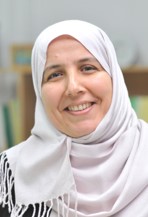 Houria Oudghiri, Professor of Practice
Houria Oudghiri, Professor of Practice
Oudghiri was most recently a visiting assistant professor at SUNY Polytechnic Institute. She has taught for more than 20 years in Algeria, Saudi Arabia, Canada, and the United States, and served as both the dean of the college of engineering and provost at Effat University in Jeddah, Saudi Arabia. Her academic and research interests are in game development, software engineering, programming, and VLSI design automation tools. “For the past 15 years, I have been teaching a wide range of computer science courses, including digital design, computer architecture, object oriented programming in C++ and Java, data structures and algorithms, combinatorial optimization, and application/game development. Teaching is not only a profession I practice but is a passion I live.” Oudghiri has a PhD in computer engineering from McGill University in Canada.
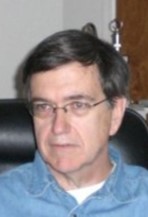 William Phillips, Professor of Practice
William Phillips, Professor of Practice
Phillips has more than 30 years of industry experience as a software engineer and developer. He most recently served as a lecturer in the computer science department at Fairleigh Dickinson University. While there, he developed new courses in cybersecurity and robotics with a grant from the National Science Foundation. “I teach students critical thinking skills by immersing them in the practice of doing simulated and real-life software projects. Practice-based education teaches students the disciplined active learning processes of critical thinking, the importance of self-directed learning, and good decision-making based on technical and experiential learning.” Phillips has a PhD in computer science from New Jersey Institute of Technology.
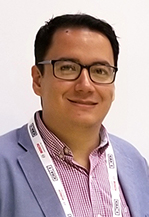 David Saldaña, Assistant Professor
David Saldaña, Assistant Professor
Saldaña was a postdoctoral researcher in robotics at the University of Pennsylvania. “My research work is focused on developing geometric algorithms and control strategies for multi-robot systems with applications in environmental monitoring, disaster response, aerial manipulation, and construction. My previous research is mainly on aerial modular robots that can build structures and manipulate objects; motion control and formation design for resilient robot swarms that can coordinate in the presence of non-cooperative robots; and estimation methods for environmental boundaries with robotic sensor networks.” Saldaña holds a PhD in artificial intelligence and robotics from the Universidad Federal de Minas Gerais in Brazil.
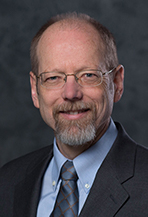 Jeff Trinkle, P.C. Rossin Professor and Chair
Jeff Trinkle, P.C. Rossin Professor and Chair
Trinkle, an expert in advanced robotics who has held numerous academic and government roles since 1987, joins the Lehigh faculty after more than 15 years as a professor at Rensselaer Polytechnic Institute, where he chaired the computer science department from 2003 to 2009. He was a founding member of the National Robotics Initiative announced by President Barack Obama in 2011 and led the $40-plus million program for the National Science Foundation from 2014 to 2016. At RPI, Trinkle directed the CS Robotics Lab, and his research investigated problems that arise when robots try to grasp and manipulate things in unstructured environments. His work has applications in smart homes of the future, with robots helping elderly and infirm people live independently longer; in manufacturing tasks such as assembly, maintenance, and repair; and in environmental cleanup tasks. “I look forward to leading the CSE Department and using my training in robotics to help strengthen Lehigh's robotics research activities and foster interdisciplinary collaborations across the Lehigh campus.”

